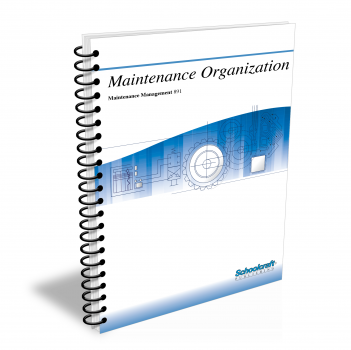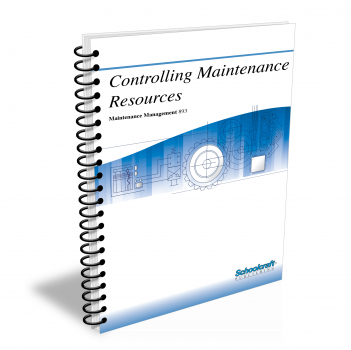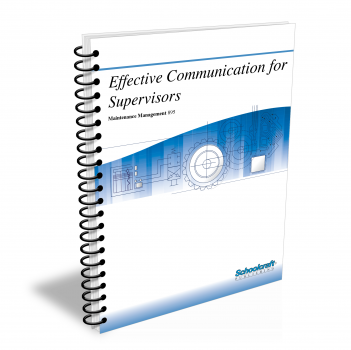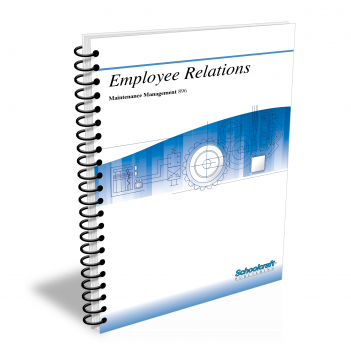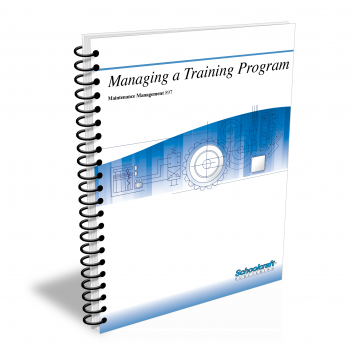Implementing Preventive Maintenance
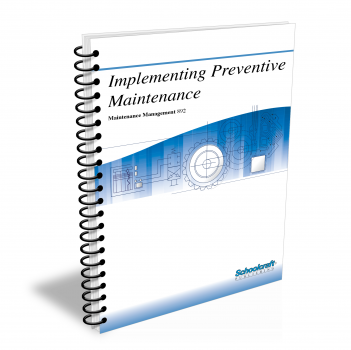
Course Number: 892
The Implementing Preventive Maintenance textbook covers what PM is and why it is necessary. Develops procedures for setting up a practical PM program, and describes effects of PM on scheduled and unscheduled work. Explains the requirements and advantages of the program as it applies to maintenance management. Provides information on the relationship of PM to production and quality control.
Does your curriculum require additional topics not included in this textbook? Build a customized version of the Implementing Preventice Maintenance textbook below.
Recommended Contact Hours – 10
Preview a Chapter
Available Supporting Material
- Table of Contents
- Exam Copies
- Suggested Titles
Table of Contents
Chapter 1: The Need for PM
Topics: The scope of PM; Good programs pay off; Costs cut dramatically; Inspections; Establishing maintenance routes; Steps in planning; Review; Decide; Implement; Maintenance job orders; Priorities; Scheduling
Learning Objectives:
- List the six functions of a typical PM Program.
- List the major benefits of PM.
- Explain the three stages involved in the planning process.
- Describe the function of the maintenance job order.
- Explain the use of a priority system.
Chapter 2: Setting Up a PM Program
Topics: Strategies for gaining support; Setting up the program; Organizing for action; Checklists; Securing cooperation; Setting up a lube program; Lubricating follow-through
Learning Objectives:
- Describe the elements needed to establish a preventive maintenance program.
- List the data that can be obtained from review of inspection reports.
- Distinguish between preventive and predictive maintenance.
- Explain the preparation of inspection checklists.
- Explain how to set up a lubrication program.
Chapter 3: Scheduling PM
Topics: Scheduling what it is and isn't; Long-range planning; Forecasting; Forecasting tips; Short-range scheduling; Scheduling meetings; Conducting the scheduling meeting; Measuring schedule compliance; Using work orders in scheduling
Learning Objectives:
- Describe the importance of scheduling to the maintenance program.
- Describe the role that the production department plays in maintenance scheduling.
- Explain the uses of forecasting and long-range planning.
- List the types of jobs that should appear on a weekly schedule.
- Explain how and why weekly scheduling meetings should be held.
- Measure compliance with scheduling.
Chapter 4: Controlling Work
Topics: Control of emergency work; Control of unscheduled work; Repetitive preventive maintenance services; Using the standing work order; Forecasting scheduled work; Forecasting planned scheduled work; Using the schedule effectively; Work order flow; Handling work assignments; Reporting labor and material use; The engineering work order; Span of control; Communications and control; Controlling specific types of work; Maintenance management network
Learning Objectives:
- List the criteria for assigning emergency status to a situation.
- Describe the use of the master schedule and standing work order.
- Describe the techniques for controlling emergency, scheduled, unscheduled, and preventive maintenance work.
- Explain the role forecasting plays in planning and scheduling.
- Report labor and material use.
Chapter 5: Quality Control
Topics: Before the job starts; Organizing materials; Tool control; Transportation and rigging; Contact with planning; Sizing up labor requirements; Control during the job; Actions at the worksite; After the work is completed; Follow-up report
Learning Objectives:
- List short cuts for obtaining spare parts and other materials that are often used in routine repairs.
- Estimate crew labor necessary for efficient job execution.
- Describe the supervisor's role at the work-site in terms of labor control, accident prevention, and quality control.
- Explain the role of quality control.
- Describe the steps involved in evaluating a completed job.
Request Exam Copies
Exam Copies
Ready to see a copy of our textbooks? After selecting which textbooks you’d like to review for your course, you can submit your request by either logging in or creating an account so we know where to ship your exam copies. A representative from Schoolcraft will contact you to confirm and finish processing your request.
Exam copies are always free and yours to keep.
Selected Exam Copies
none selected
* Maximum of five copies can be ordered
